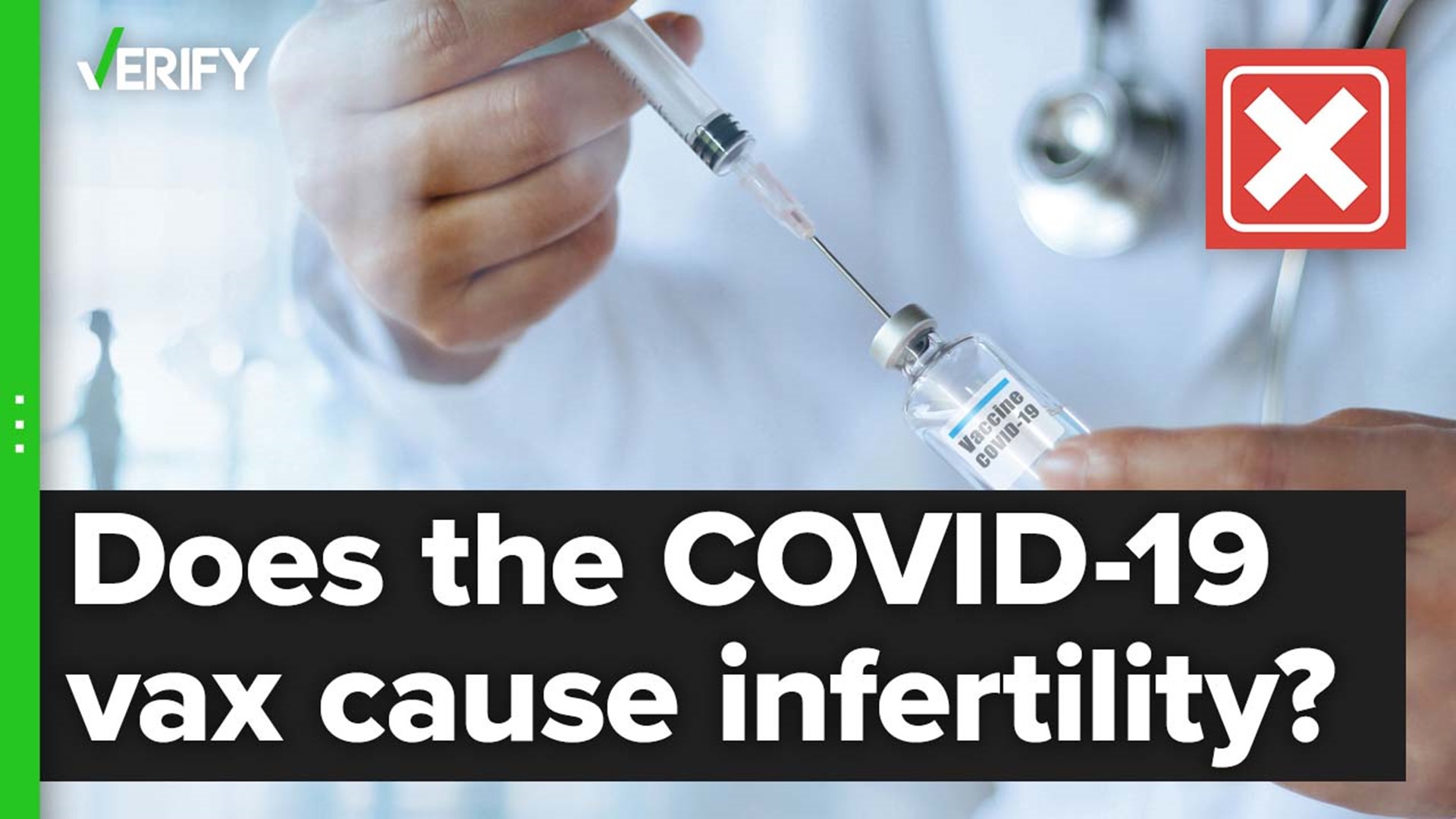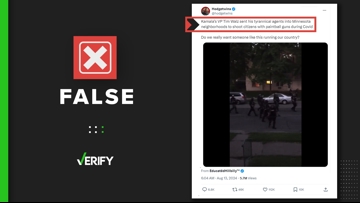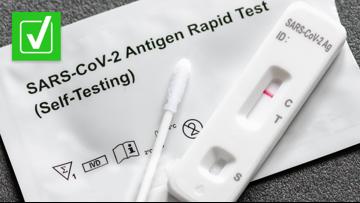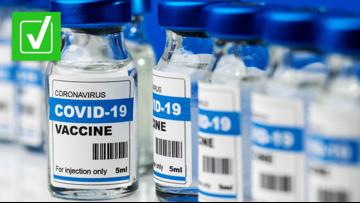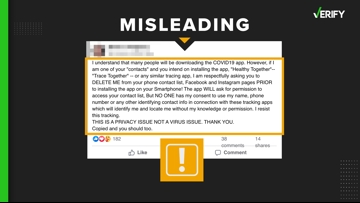During a White House press briefing on Feb. 2, Anthony Fauci, M.D., refuted claims that the COVID-19 vaccine could impair fertility in women and men, referencing two different studies. The claims about reduced fertility aren’t new and have been circulating online for at least a year.
Viewers Mary Anne and Sue also emailed the VERIFY team to ask if the COVID-19 vaccine causes infertility.
THE QUESTION
Does the COVID-19 vaccine cause infertility in women or men?
THE SOURCES
- Centers for Disease Control and Prevention (CDC)
- Joint statement from American Society of Reproductive Medicine (ASRM), American College of Obstetricians and Gynecologists (ACOG) and the Society for Maternal-Fetal Medicine (SMFM)
- Study published in the American Journal of Epidemiology
- Study published in the American Journal of Obstetrics and Gynecology
- Johns Hopkins Medicine
- Valerie Baker, M.D., reproductive endocrinologist and professor of gynecology and obstetrics at Johns Hopkins Medicine
THE ANSWER
No, there’s no evidence that the COVID-19 vaccine causes infertility in women or men. At least two studies have shown no difference in conception and fertility among vaccinated and unvaccinated people.
WHAT WE FOUND
The Centers for Disease Control and Prevention (CDC) says there is currently no evidence that COVID-19 vaccines cause fertility problems in women or men. Reproductive health experts with the American Society of Reproductive Medicine (ASRM), American College of Obstetricians and Gynecologists (ACOG) and the Society for Maternal-Fetal Medicine (SMFM) also issued a joint statement in February 2021 emphasizing that “there is no evidence that the vaccine can lead to loss of fertility.”
Several studies referenced by Fauci during the White House briefing support these statements from the CDC and reproductive health experts.
A study funded by the National Institutes of Health and published in the American Journal of Epidemiology in January 2021 found that the COVID-19 vaccine does not reduce the chances of conception. Researchers at Boston University enrolled 2,126 women in the U.S. and Canada in the study between December 2020 and September 2021, and followed them through November 2021.
The study found no major differences in conception rates between unvaccinated and vaccinated couples in which at least one partner had received at least one dose of the COVID-19 vaccine.
However, the study did find that couples were 18% less likely to conceive if male partners were infected with COVID-19 within 60 days before a menstrual cycle. This short-term decline in fertility “may be avoidable by vaccination,” the study says.
Fever, a common symptom of COVID-19, could explain the short-term decline in fertility for men, the study says. The decline could also be related to “immune response and inflammation” in certain areas of the body.
“For couples attempting pregnancy, it's less clear that the COVID infection itself would cause a drop in fertility for women, particularly if a woman is not becoming really ill. But [there’s] definitely some data that it affects fertility for men,” said Valerie Baker, M.D., a reproductive endocrinologist and professor of gynecology and obstetrics at Johns Hopkins Medicine.
Another study published in the American Journal of Obstetrics and Gynecology found that administration of mRNA COVID-19 vaccines “was not associated with an adverse effect on stimulation or early pregnancy outcomes after in vitro fertilization (IVF).”
Johns Hopkins Medicine says on its website that questions about vaccines and fertility arose when a false report that surfaced on social media said the spike protein on COVID-19 was the same as another spike protein called syncytin-1, which is involved in the growth and attachment of the placenta during pregnancy. The report falsely stated that getting the COVID-19 vaccine would cause a woman’s body to fight this different spike protein and affect her fertility.
Baker said, “there's no evidence that the COVID-19 vaccine induces an antibody against a placental protein or the start of it.”
More from VERIFY: Yes, the CDC changed its definition of vaccine to be 'more transparent'
